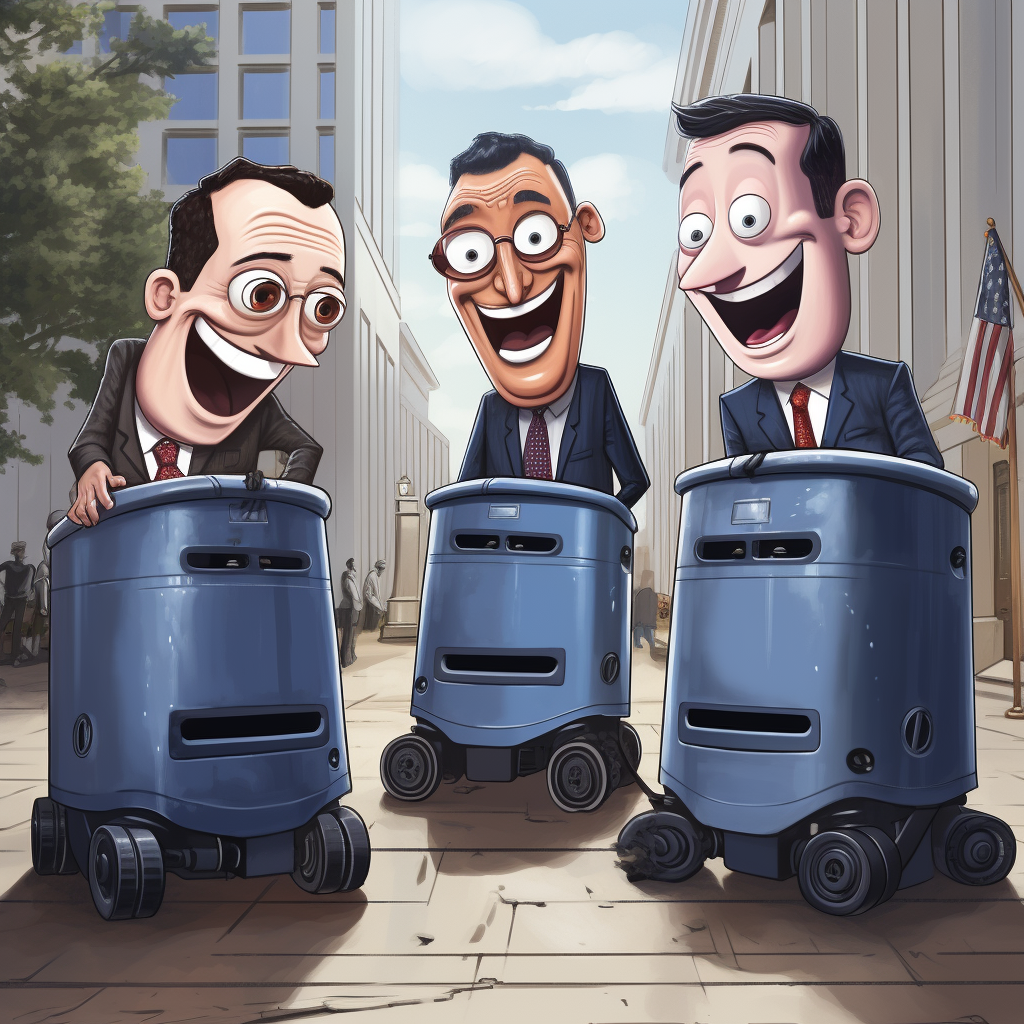
Since when do government agencies applaud business deals that fall apart, resulting in hundreds of layoffs and loss opportunities for consumers who depend on those products?
That’s what happened earlier this month, when the Federal Trade Commission issued a press release applauding the failed $1.7 billion acquisition of the technology firm iRobot by the ecommerce giant Amazon.
The FTC, as well as Democratic Senators and competition regulators in the European Union, were hostile to the deal as they claimed it would “harm” competition for robot vacuum cleaners, one of the main consumer products made by iRobot, including its signature Roomba, one of the first products of its type. UK regulators disagreed and green-lit the deal back in June 2023.
Once the termination of the deal was announced, iRobot said it would be forced to lay off 31% of its employees – over 350 of them – and likely pause new projects. Their CEO also stepped down amid a falling stock price.
In response to the news, the FTC gloated that the transaction fell apart:
“We are pleased that Amazon and iRobot have abandoned their proposed transaction. The Commission’s probe focused on Amazon’s ability and incentive to favor its own products and disfavor rivals’, and associated effects on innovation, entry barriers, and consumer privacy. The Commission’s investigation revealed significant concerns about the transaction’s potential competitive effects. The FTC will not hesitate to take action in enforcing the antitrust laws to ensure that competition remains robust.”
–Federal Trade Commission Associate Director for Merger Analysis Nathan Soderstrom
The failure of business mergers and acquisitions aren’t uncommon. Whether it be because of stockholder pressure, regulatory concerns, or mismatch of company cultures, deals like this fall apart all the time as often as they succeed. This cycle, caused by market forces, is healthy for innovation, better allocation of capital, and more options available for consumers in the market.
However, if the failure of a business deal and then a company comes at the hands of a regulator, that’s an entirely different matter. One that should leave us asking hard questions of the officials at these agencies, and whether they’re really looking out for consumers’ best interest.
The impact of such failures on consumers should not be lost.
With the failure of this acquisition, and without new innovative products or injections of capital, the maker of one of the first robotic vacuums purchased by millions of Americans and global consumers will likely end up a shadow of its former self. One more product will disappear from physical and online retail shelves, giving consumers less choice than they had previously.
There will still be plenty of options for consumers who want a robotic vacuum in their home, but the significant blow to iRobot means fewer consumers will be able to benefit from the new products and services that could have spawned as a result of this merger.
Armed with Amazon’s vast inventory, its capital, and its supply chain, as well as the current demand for artificial intelligence products consumers can use in their homes, we can only imagine what this partnership could have produced.
This leaves us asking an important question: had Amazon been allowed to purchase iRobot, would it have put other companies at a disadvantage? Would it have squelched competition in robotic vacuum cleaners? Would it have reduced choice and options for consumers? Or would it have led to significantly more innovations and products that we could have benefited from?
Put simply, we just don’t know. But neither does the FTC nor the EU regulators who also shot this deal down. Rather than increasing competition or denying an advantage, the FTC has managed to kill off the opportunities for an American company to grow and succeed, as well as the consumers who benefit from these products.
This has been a key mantra of the FTC during this administration, seeking to put halts on mergers and acquisitions for grocery stores, technology companies, and even healthcare firms, as my colleague Kimberlee Josephson eloquently puts here. These are robust and competitive sectors that are continuing to deliver innovation to consumers, and would benefit from having more not fewer companies.
Instead of a win for consumers as the FTC claims, all we have now is a failed business deal, a company in shambles, and an uncertain path for the open market of robotic vacuums. All in the name of “protecting the consumer”.
Since when should our regulatory agencies, which act in our name, cheer and applaud when deals like this lead to layoffs, declining revenues, and fewer options for consumers? That seems like not only poor in taste, but harmful to our own economic prospects and choices as customers.
If consumers aren’t scratching their heads yet, they definitely should be.


